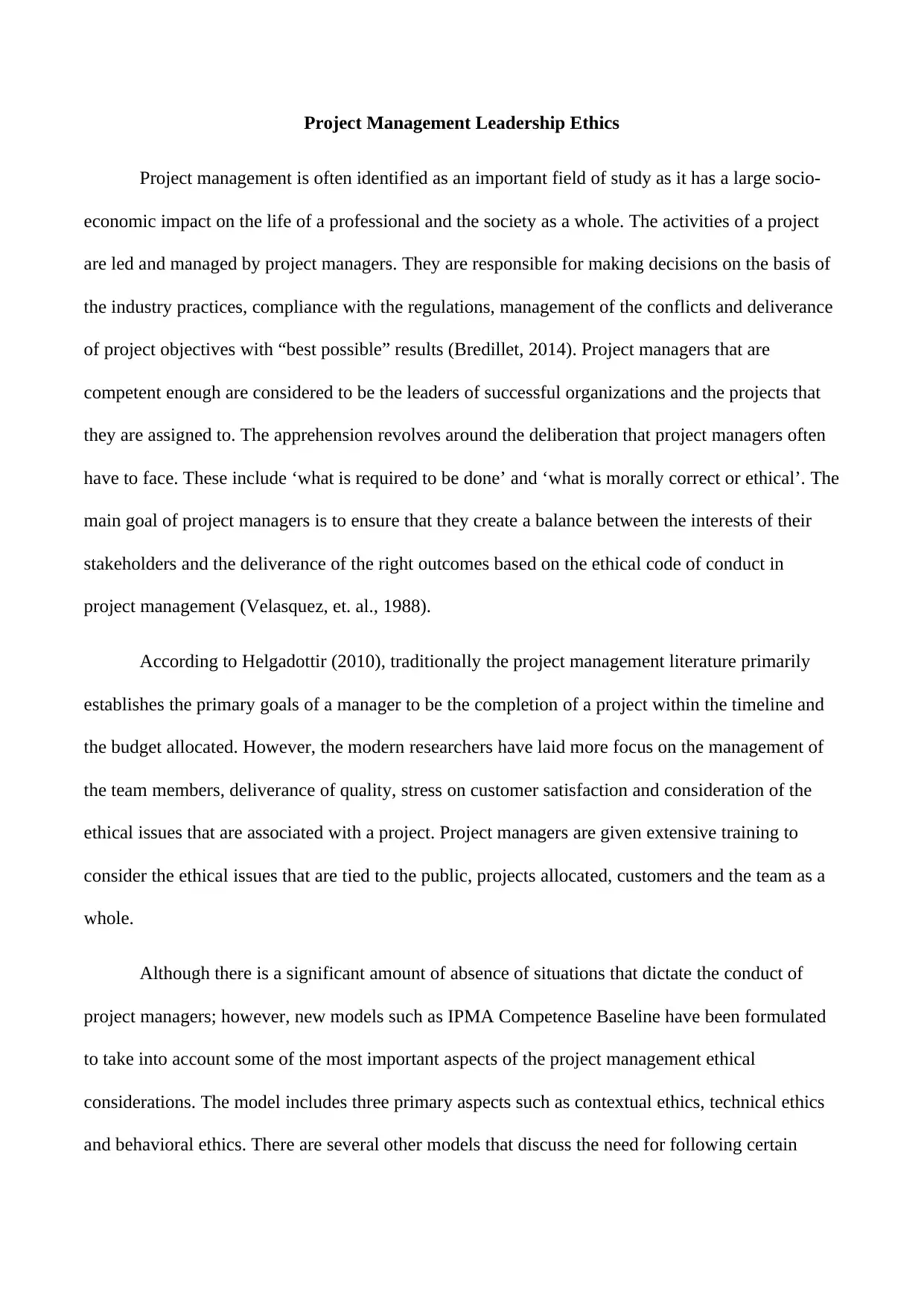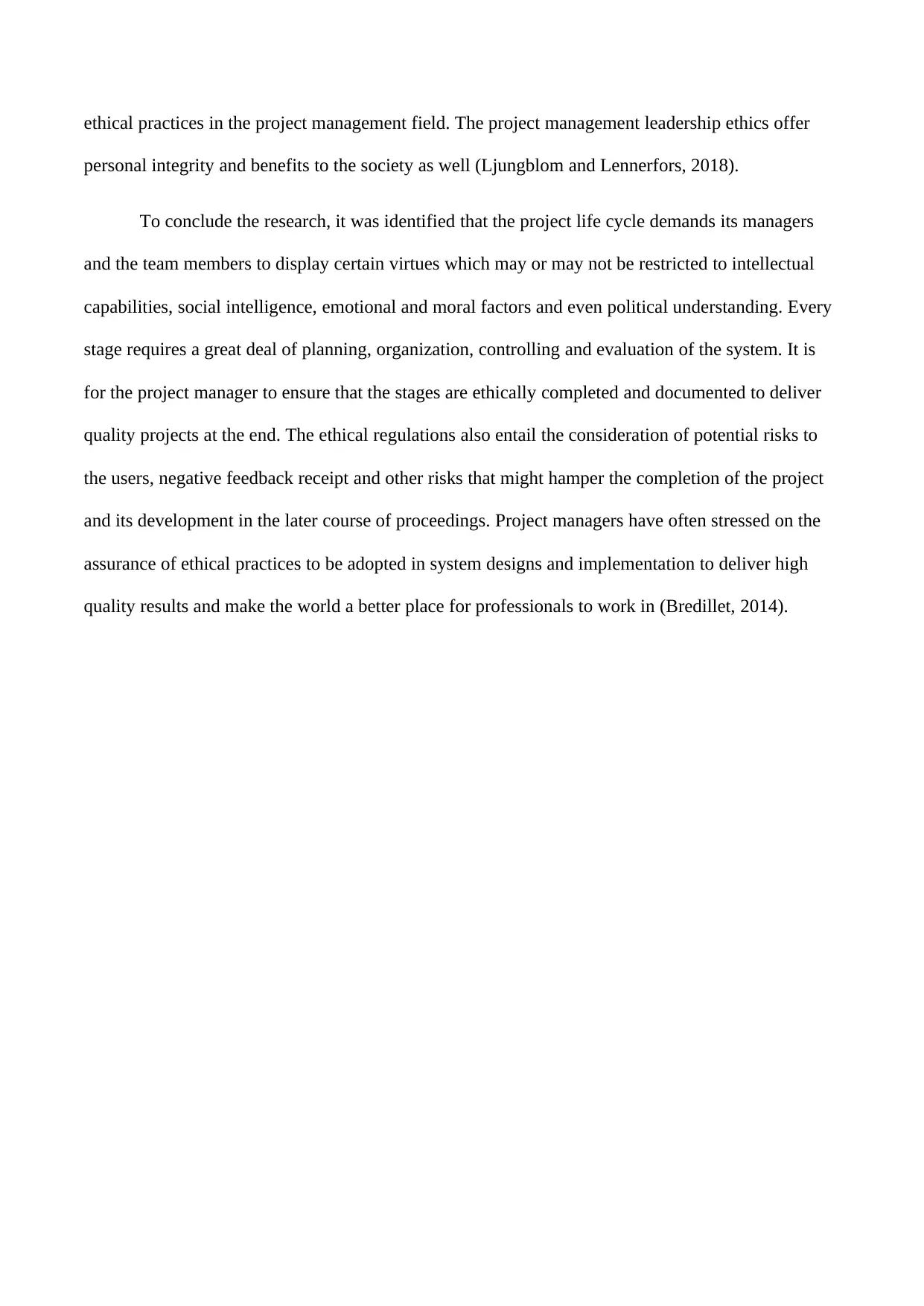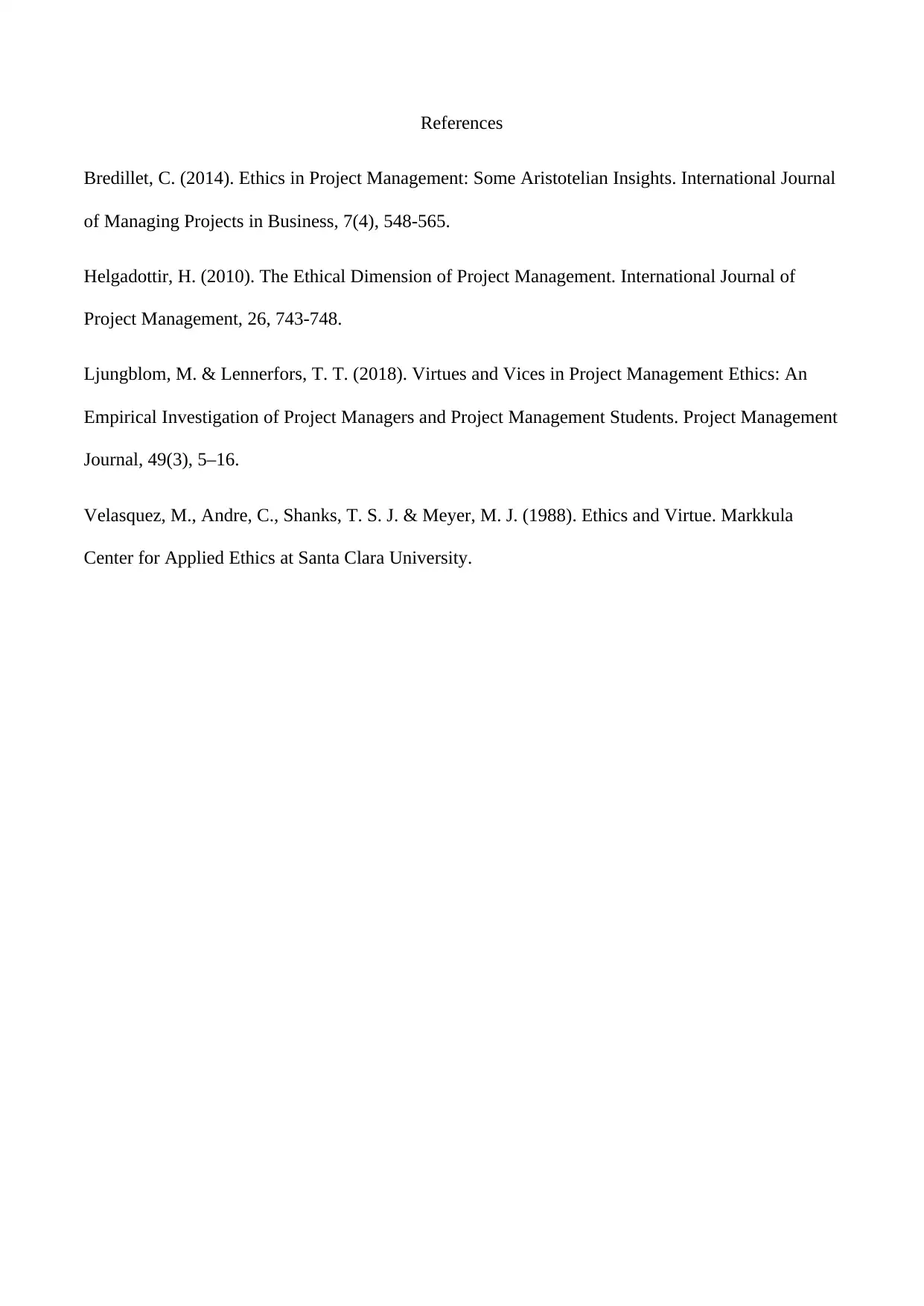Project Management Leadership: Ensuring Ethical Project Delivery
VerifiedAdded on 2023/03/23
|3
|707
|72
Essay
AI Summary
This essay examines the crucial role of leadership ethics in project management, highlighting the responsibilities of project managers in balancing stakeholder interests and ensuring ethical conduct throughout the project lifecycle. It emphasizes the importance of adhering to ethical codes, considering the well-being of team members, and delivering quality outcomes. The essay also references models like the IPMA Competence Baseline, which incorporates contextual, technical, and behavioral ethics. Ultimately, it concludes that project managers must exhibit intellectual, social, emotional, and moral virtues to ensure projects are ethically completed, documented, and deliver high-quality results while considering potential risks and negative feedback. Desklib offers a platform to access this and many other solved assignments for students.
1 out of 3









![[object Object]](/_next/static/media/star-bottom.7253800d.svg)